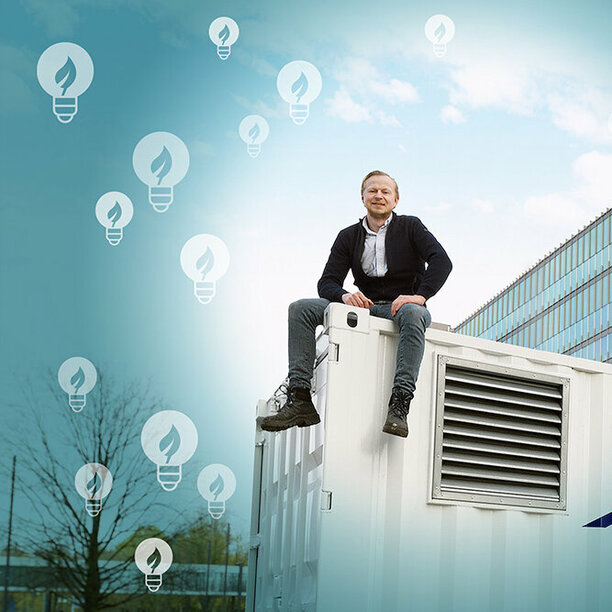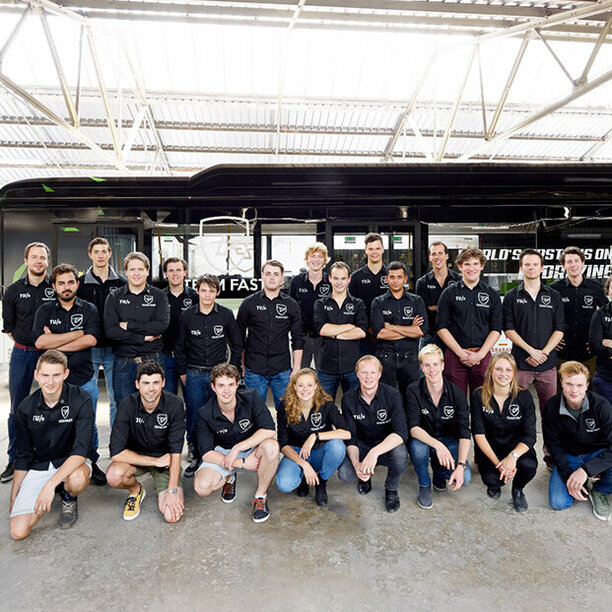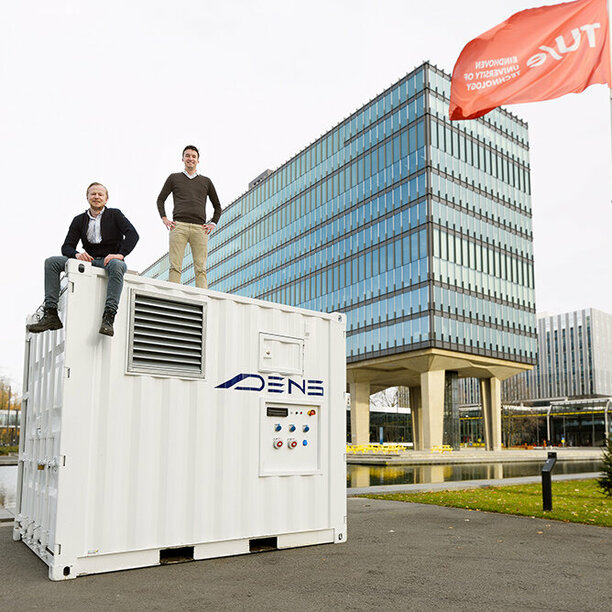Energetic entrepreneur
When life gives you lemons, make lemonade. That proverb pretty well sums up Max Aerts’ attitude. ‘I am dyslectic. At primary school, my teachers gave me the advice to go to a VMBO school. But since I wanted to become a dentist, I needed a VWO diploma. So from a young age I am used to having to prove myself.’ To his initial regret, he did not get selected for the dentistry program. ‘Since I liked working with my hands and building prototypes and stuff, my parents advised me to enroll in the Industrial Design program at TU/e instead.’
The enthusiastic businessman comes from a family of entrepreneurs, he tells, with parents, aunts and uncles managing their own companies. Once at TU/e, Aerts’ innate entrepreneurial mindset came to full fruition. Already in his second year, he started his first company Findur, based on an educational project on combining online and offline shopping. ‘I really like the project-based approach of Industrial Design’s educational program,’ Aerts says, ‘working on societal problems, building prototypes and commercializing them really suited me.’ And he turned out to be very good at it too. ‘I got excellent marks, and was asked to join the Honors program in my second year.’
Plunge in
‘And that is where the beauty of such a student team comes in,’ Aerts says. ‘We stepped in with such naivety… we had to scale up our engine a thousand times, from 20 W to 20 kW, and also drive a bus with it. With my current experience, I know that is too much to take up. But we just plunged in and went for it.’ Eventually, the bus never drove. But the team did manage to build the required 20 kW system though, which no one had believed to be possible.
Aerts and his companion Tijn Swinkels decided to turn team FAST into start-up company DENS. And then they got lucky. ‘As they say, luck is where preparation meets opportunity,’ Aerts teaches. ‘We had developed a pilot generator that was ready to be implemented. And then the nitrogen crisis hit.’ The construction industry urgently looked for more sustainable ways of working, and soon stumbled upon Aerts’ company DENS. From then on, the train really started moving. Multiple partnerships were established that enabled the company to conduct field tests for a myriad of applications. For example, at the moment DENS is installing a prototype system at a steel plant in Dunkirk. Their machine will be part of a circular system that captures the CO2 emitted by the plant, transforms that into Hydrozine, and uses the Hydrozine to provide onshore electricity for ships. ‘In principle, our technology can replace anything that is now driven by diesel,’ Aerts says. Currently the company is focusing on non-road mobile machinery, such as generators, caterpillars, and excavators.
Make lasting impact
Though with their company Aerts feels he is at the start of something big, he also already has a lot to look back on with pride. ‘We started out with a proof of concept of a catalyst and managed to turn that into a power system that we are now implementing at an industrial scale. And we did all of that within a mere six years! I am convinced that this technology can be a true gamechanger that will make a lasting impact. And that notion is what motivates me and my team to keep pushing boundaries every day.’


